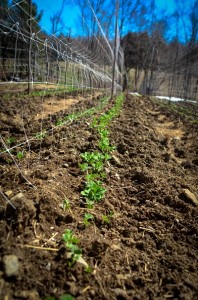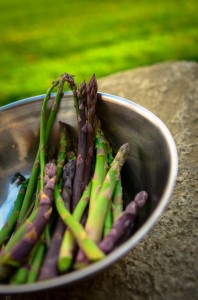 Moments after I sent the newsletter to you all a couple of Saturday mornings ago, Neshima walked downstairs and proclaimed, “The birds sing so loud in the morning they wake me up. I love it!” And thus continues this gorgeous spring. More modern and less poetic side of it: I have had a ringtone on my phone of a recording of a cardinal call, but it has gotten to the point that everyone thinks I’m blowing up all the time if we’re outside, or is looking around for a bird if we’re in the house. I think its time to change it so I actually get my calls.
Moments after I sent the newsletter to you all a couple of Saturday mornings ago, Neshima walked downstairs and proclaimed, “The birds sing so loud in the morning they wake me up. I love it!” And thus continues this gorgeous spring. More modern and less poetic side of it: I have had a ringtone on my phone of a recording of a cardinal call, but it has gotten to the point that everyone thinks I’m blowing up all the time if we’re outside, or is looking around for a bird if we’re in the house. I think its time to change it so I actually get my calls.
Big farm news for the last week and a half is really just farmy stuff. We have arrived at May 1 closing in on having a quarter of the farm planted, and working our butts off in solidarity with all of the workers around the world. Today we celebrate! Every day we are planting, seeding, and watching the peas inch towards the sky with sweet memories of last year’s peas that were so tall we could not even reach the tops without a ladder. Garlic is five inches tall and the dandelions are blooming. That means its time to plant potatoes. And just yesterday we finished planting the last of the tiny, grass-blade-like onion and leek seedlings. 2700 in all. That’s a lot of bad breath!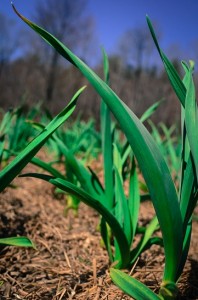
We also had the honor of participating in two community Earth Day events last Saturday. Perfectly timed for our busy-loving selves. The morning was spent in Arbor Hill, where we continue to make new connections, strengthen existing ones, and even do a zumba workout. Then it was off to South End Earth Day for the afternoon. This community continues to be a place where we feel at home. Our hearts never left this neighborhood. Highlights were beyond abundant, as I realized my face hurt from smiling later that evening, including watching Emet reunite with a best neighborhood friend he had not seen in Two years, as well as jump on stage to steal away the African drumming performance because he just couldn’t stand to sit on the side any more. And of course, dancing on the transformed basketball court, sharing our work with new and old connections, and celebrating the work that has gone into making the South End a vibrant community that has grown itself from the grass roots.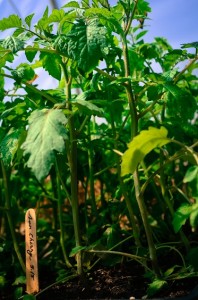
Once the CSA season starts, I regularly include a piece on food justice; this being such a core part of the mission of our farm in many different ways. The piece in the newseltters is an opportunity to share the scope, importance, and extraordinary nature of this work. Being part of our farm is more than the food alone.
So this week, news of the Pigford settlement could not go unmentioned. In short, Pigford was a lawsuit filed against the USDA in 1997 (known as Pigford vs. Glickman) to address the discriminatory behavior Black farmers, or those attempting to farm, experienced at USDA offices between 1981 to 1996. The dates for the suit were chosen because the Reagan administration abolished the USDA’s office of civil rights in the 1980’s and the Clinton administration reinstated the office in the 1990’s. So, for these 16 years, if Black farmers filed a discrimination complaint with the USDA, their complaints were not addressed as there was no one at the USDA with responsibility to do so. The misbehavior of the USDA was myriad in its manifestations, but most profoundly impacted loan applications. This 16-year period is just the tip of the iceberg for the long-standing discrimination Blacks have experienced at USDA offices throughout the country and, in fact, throughout the history of the USDA. As Pigford Attorney J.L. Chestnut noted “No amount of money could adequately pay for the pain and suffering experienced by Black farmers, but at least the nation is now acutely aware of their plight and hopefully the changes at USDA can begin.” Read the entire article in the Nation here.
Following the announcement last week, the New York Times published an embarrassingly ignorant article in response to the Pigford settlement. Claim after claim are inaccurate, misrepresented, and many downright biased. All the while, the reporter did not speak with any of those farmers involved in the case. You can read the NYT article here. The exact opposite was true; racial, ethnic and gender discrimination costs us billions in lost productivity, growth and expansion of our society and nation. The Federation of Southern Cooperatives, an organization formed to support Black Farmers by Black Farmers in the Southern United States, put out a response. The summary is below and their entire response can be viewed here. They break it down point by point. It is striking.
We are deeply concerned about the inaccuracy and misleading statements made in Sharon LeFraniere’s article “Federal Spigot Flows as Farmers Claims Discrimination“. We are also concerned that the reporter never interviewed those who have been involved in addressing the discrimination Black farmers have experienced since the 1960’s. Further, LeFraniere never reported in detail the discriminatory behavior of the USDA staff toward minority farmers during the 1981-1996 claims period of the lawsuit much less since the beginning of the farm programs in the 1930’s. Nor did she focus on what the USDA staff polices are and how USDA staff were supposed to assist and encourage farmers in their farming needs and concerns. Consequently, she did not report on the violations of government regulations and policies by the USDA staff. Instead, Ms. LeFraniere chose to critique the Black farmer victims and those at the USDA who were attempting to correct this injustice. From the 1930’s until now, this has been a sad chapter in the American history of discrimination that, thankfully, is being somewhat addressed in the Pigford lawsuit. Below is a listing that corrects some of the misinformation in the LeFraniere article.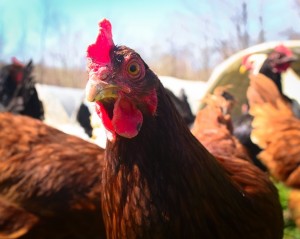
If you want to take further action, you can write a letter to the NYT by e-mailing letters@nytimes.com or contact the Federation of Southern Cooperatives, where you can also donate to their cause.
Have a wonderful week!
Jonah, Leah, Neshima & Emet
Announcements
- If you are a shareholder, you can volunteer 5 hours over the course of the season in exchange for an additional week of food in the fall.
- Pasture raised poultry is available for pre-sale here.
- Remember that you are always welcome to visit socially and/or to volunteer. Give a call to schedule a time.
- All of our newsletters are archived on our website
- Please also like us on Facebook. There are larger picture albums there, and more being added each week.
- Return your cardboard egg cartons if they are clean.
- Summer Solstice Party is June 29. Dancing, trapeze, fire, food. Mark your calendars.

